
Composting: All You Need To Know About This Sustainable Practice
Published: 14/11/2022 | Updated: 29/03/2023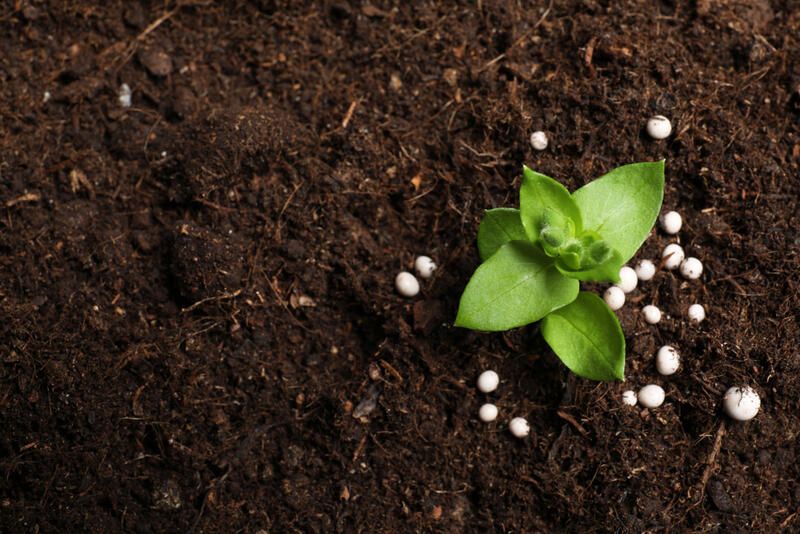
With the recent lifestyle changes, we’re all constantly looking for ways to improve our homes and gardens while maintaining sustainability.


One of the best gardening projects you can take on is composting.
Composting can be regarded as a natural waste disposal process. In this process, organic matter decomposes under natural circumstances and high oxygen.
Once all organic waste involved in the composting process breaks down, the finished compost makes a perfect nutrient for your soil, lawn, and garden.
Compost is an easy-to-make, free-of-cost supplement that will simultaneously enhance the quality of your soil and reduce your waste.
Though, the benefits of composting go way beyond just that.
The Benefits of Composting
Since composting encompasses the recycling of organic materials such as food scraps, garden waste, and grass clippings into organic garden food, it creates a portal to both waste reduction and soil enhancement.
This makes the process very beneficial to the environment, but this is not its only power.
- Soil enhancement
After all elements of compositing are broken down or decomposed, the final product is called humus. This product makes for a great nutrient that helps retains moisture in the soil and refreshes your garden.
- Waste reduction
Yard and food waste or overall compostable materials make up over one-third of solid waste in North America. Recycling this waste will not only reduce your rate of personal waste but will overall help the environment.
- Reduction of the need for synthetic fertilizers
Composting is a free, easy-to-make product that will reduce your need for fertilizers. This will naturally reduce the harmful side effects and the money that goes into them.
- Soil protection
the microorganisms involved in the compositing process help break down organic materials and speeds up the decomposition process. When introduced to the soil, they help protect your plants against diseases and keep them healthy.
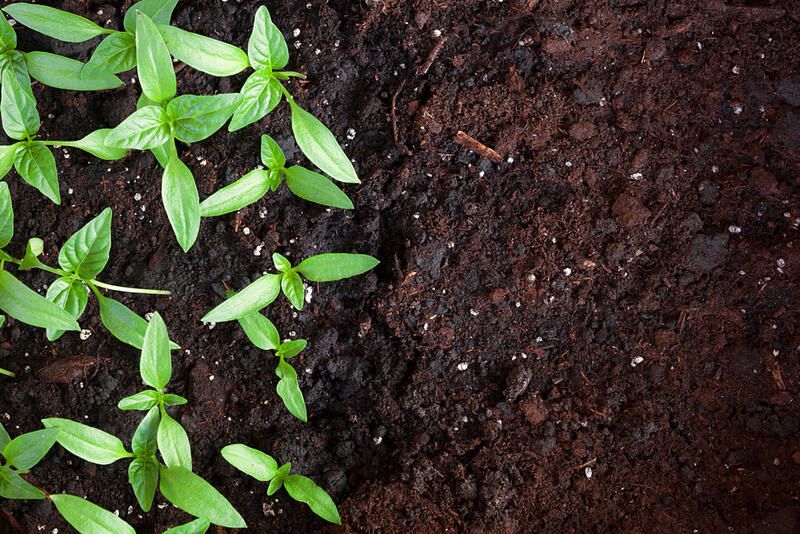
What can you compost?
The type of composter you’re working with does make a difference as to what materials you can compost. Though, there are some general rules to maintaining a healthy compost mix that will actually benefit your soil.
-
Keeping your compost well aerated: Turning your mix whenever you add new ingredients rather than keeping them in a static state, will allow oxygen to visit different parts of your mixture, which will speed up the composting process.
-
Maintain a healthy level of moisture: moisture does play a role in speeding up the decomposition of organic matter, but too much moisture will result in a soggy mixture that will eventually stink. Making sure your compost pile isn’t too dry or too wet will ensure a healthy compost.
-
Keep a healthy carbon-to-nitrogen ratio: keeping a healthy carbon-to-nitrogen ratio is essential to composting.
Compost pile
Any compost pile consists of parts carbon-rich materials and parts nitrogen-rich materials. A healthy compost pile ideally should have a higher percentage of carbon.
To understand these components in the simple sense, think of carbon materials as the dry materials that make the body of your compost pile and nitrogen ones as the wet materials and activators that get the decomposing process going.
A higher carbon percentage maintains the airiness and allows oxygen to flow within your pile, this helps keeps your mix fresh and prevents strong odors eventually producing a healthy usable compost. So, what are carbon-rich compost materials?
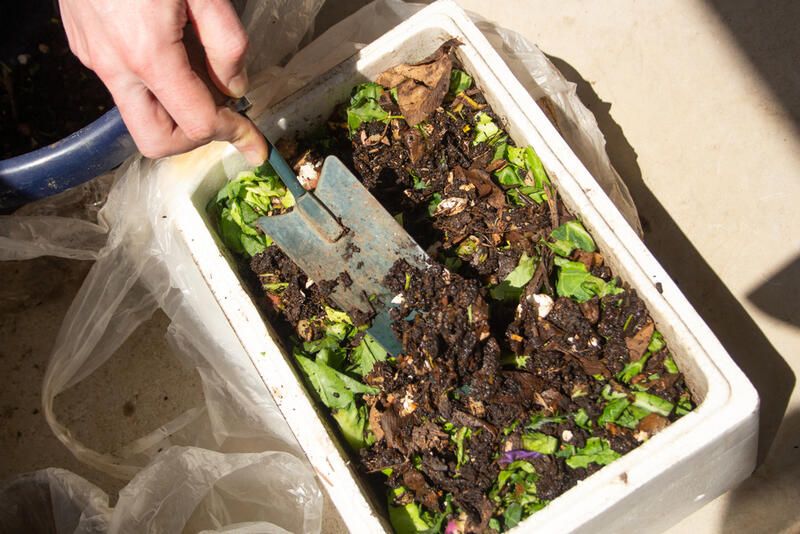
Carbon-rich material
Also known as brown materials, which makes them easier to recognize. They make the food for the microorganisms in the compost pile which will then help the process by breaking down materials included.
Some examples are wood ash, wood chips, cardboard, coffee grounds, eggshells, and dried leaves.
Nitrogen-rich materials
Nitrogen-producing compost material or green materials help the microorganisms grow and heat up the compost pile, so it helps the process get going.
some examples are kitchen waste, food scraps, green leaves, fruit and vegetable scraps, and yard waste.
What should you not add to your pile?
As previously mentioned, there are a lot of materials you can compost while keeping a healthy pile such as tea bags, vegetable waste, weed seeds and brown and green matter.
So, what should you not add to your pile to keep it healthy?
Our gardening experts generally advise against using fish scraps and meat as well as pastries and baked goods, and that's because they tend to attract pests which will ruin your compost pile and cause it to stick. It's also highly advised not to add glossy paper and diseased plant leaves.
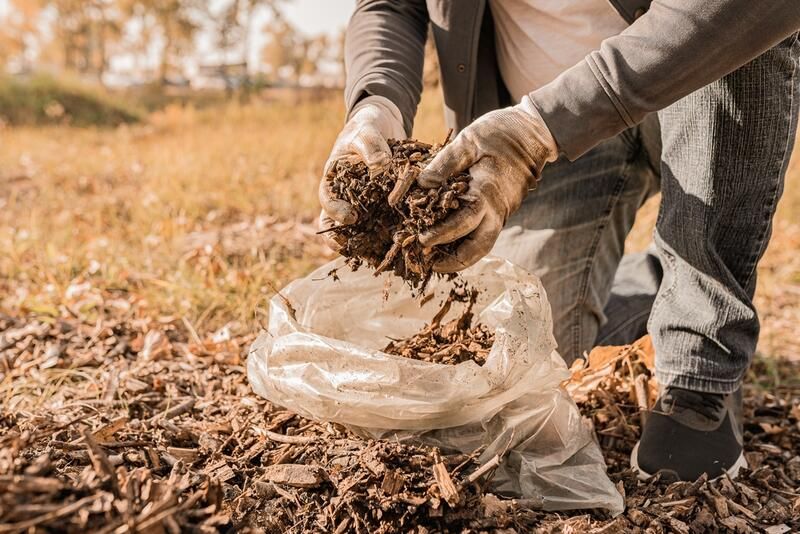
Compost bins
The first step to successful composting is choosing a good compost bin.
There are various types and materials you can choose from based on your location and needs.
DIY compost bin
Many homeowners have been resorting to DIY options due to their convivence and affordability, the concept of composting itself is pretty much a DIY project.
You can DIY your own compost bin by using a garbage can. All you’ll need to do is to drill regular aeration holes and you should be all set and ready to compost.
If you’d like to opt for something sturdier and better looking, you can DIY a wooden compost bin by stacking wood planks together.
Preset\standalone compost bins
There are quite a few options to choose from when it comes to preset compost pins but some of the best ones are:
- Stationary compost pins
As the name suggests, these bins are static for composting in one place. They make a good option for beginners or homeowners with modestly sized yards. These can be ideal for normal amounts of kitchen scraps and garden waste and many of them are made from recycled plastic to further enhance sustainability.
- Rotating\tumbling bins
Compost tumblers are bins with a system that allows them to move, mixing up the pile and allowing air and oxygen to flow within your compost piles.
A compost tumbler tends to be ideal for larger yards. They handle larger amounts of waste which makes them ideal if you're planning to compost regularly or if you have a larger outdoor space.
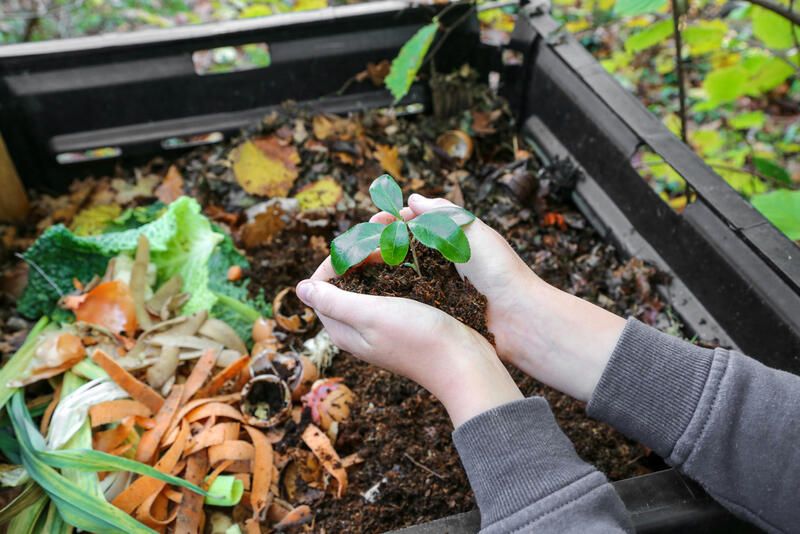
Worm composting
Worm composting uses earthworms to digest composting materials and convert them into soil food. This type of composting requires a worm bin, which is mostly made of recycled plastic but is conditioned to host worms for the process.
Composting process
Overall, there are two types of composting: the first one is hot composting, which is what was mentioned before, where dry and wet ingredients are put together with activators for fast composting.
And cold composting, which is preserving dry organic ingredients together and letting them decompose slowly over the span of a year or more.
Your guide to composting
Once you’ve selected your compost bin and the best location for it (preferably somewhere with partial shade and good ventilation and drainage), you can now start laying your materials.
- It is generally advised to work in layers and alternate between green and brown matter or wet and dry ingredients.
- To help keep your base airy, start with wood chips, twigs, and similar materials, this will allow moisture and air to flow within your mixture.
- You can then start adding your greens like freshly clipped grass and other nitrogen sources to get the process going.
- Oxygen is essential to a successful compost mix so It’s highly recommended to turn your mixture every other week to allow aerating and keep a healthy oxygen flow.
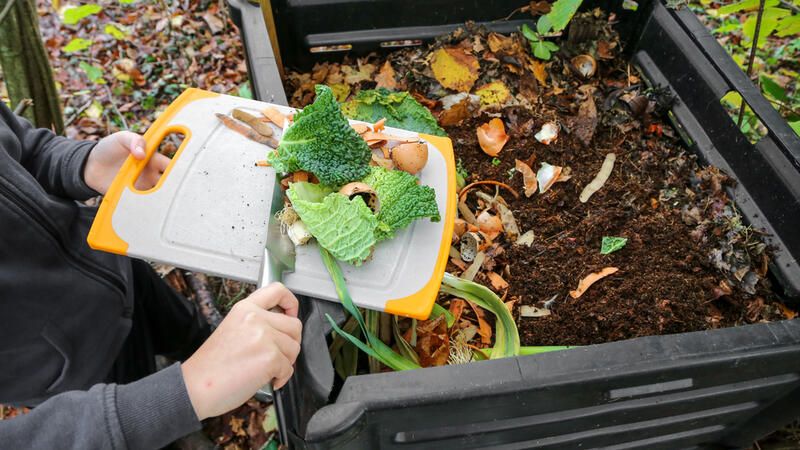
Final thoughts
Whether you're a great gardener or a beginner, Composting is a very effective and easy process from which you can benefit the environment and get rid of your kitchen and garden waste while staying sustainable.
The final product you'll end up with will make for a great nutrient for your garden soil and will save you the money and side effects of artificial fertilizers!
About Shrubhub
For more professional advice on gardening, landscaping, or home renovation, visit shrubhub.com
If you're a homeowner looking to update your outdoor spaces and add value and functionality to them, Shrubhub is just the place for you! for under 300$ you'll receive a detailed design plan inclusive of softscape and hardscape elements for a finished high-end look.
Your package will also include:
A personalized process with your own project manager.
One-on-one consultations with trained professionals.
a list of all plants and materials included in your design.
detailed information about sizes and measurements for guaranteed accuracy.
Visit Shrubhub for discounted packages and further information.


